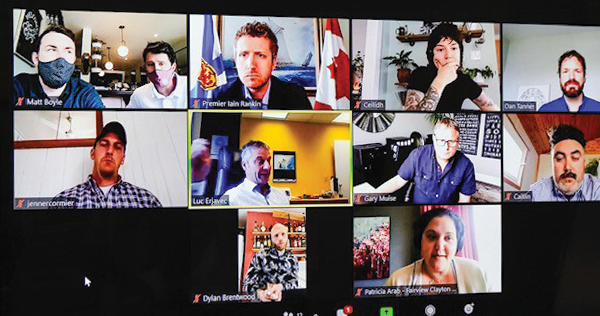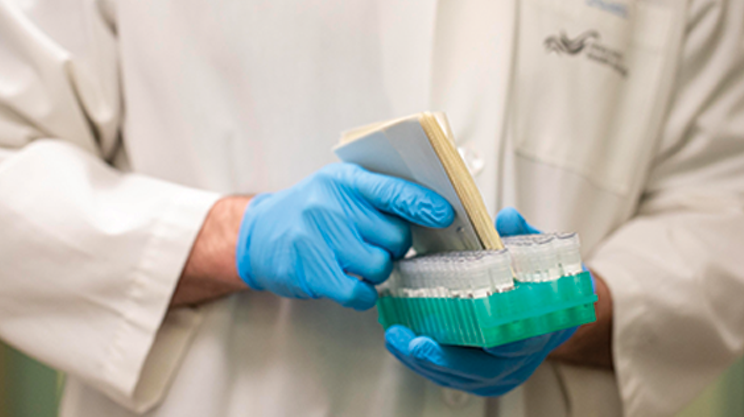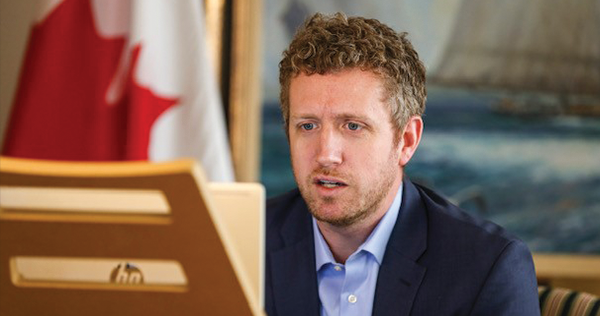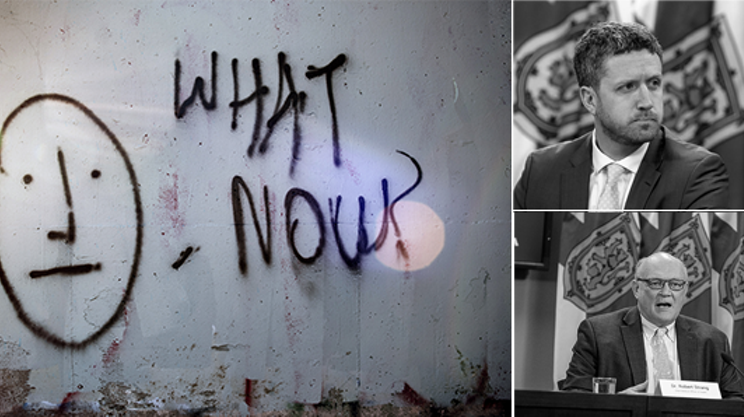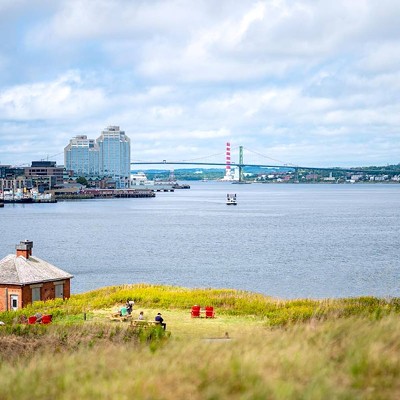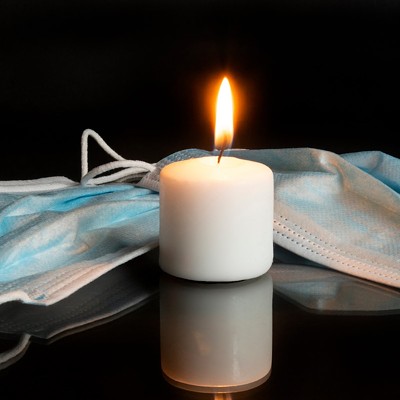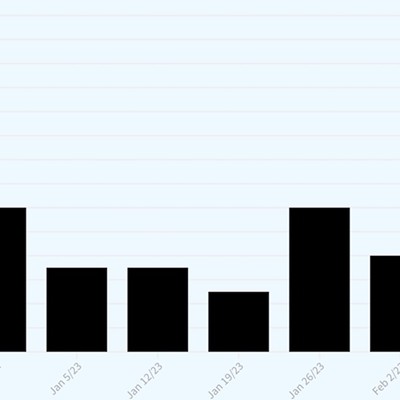On Wednesday afternoon, Nova Scotia issued a news release about changes to liquor laws and third-party delivery services. While there was no press conference associated with the announcement, the release includes some pretty big changes for restaurant owners and customers alike.
Among the changes are the ability for bars and restaurants to deliver cocktails and mixed drinks alongside food, as well as ready-to-drink manufactured beverages like coolers, and increasing the value of a bottle of wine allowed with a home delivery.
The first of these changes is something the industry had been lobbying for over the course of the pandemic. “I can't take full credit, but I would say that it has been something that people have been working on for a while,” says Matt Boyle, co-owner of Dear Friend Bar in Dartmouth and Clever Barkeep in Halifax, and who led the campaign on social media.
While Boyle says it’s a huge win for the industry, there are some constraints to the new rules. The drinks must be single-serve portions (up to 400ml) with no more than three ounces of alcohol each. They must contain multiple types of alcohol or at least one mix-in like simple syrup, soda or juice. “There’s no ABV restriction on the drink,” says Boyle, referring to the alcohol-by-volume measurement. “It just is similar to how you would present a drink at a cocktail bar, where you would say exactly how many ounces of alcohol are in the drink.”
Cocktails also must be made to order, sold with food, labelled and need to be in a “tamperproof container that can be sealed,” according to the release. “You can't just put in a mason jar, but you can put it in many different types of bottles that can get plastic seals that you heat up,” says Boyle. “We came into a hand-canning machine probably two months ago, and it’s just serendipitous that we were able to source some aluminum and be able to seal them ourselves.”
Finally, eligible bars and restaurants must apply by emailing the Alcohol and Gaming Commission at [email protected]. All these regulations mean not many in-house cocktail operations will be ready to go by this weekend—but Boyle says Dear Friend is among the few. “We've been working around-the-clock for the past few days to make this viable for the weekend,” he says. “It is a ton of work.”
Dear Friend will have three of its most popular mixed drinks available in cans this weekend—the Inflatable Pool, Sage Advice and the Channel Surfer—and will expand its offerings as time goes on. Boyle says overall, he was glad the premier Iain Rankin’s government worked so fast to make the change.
“Rankin was saying how he understands that our liquor laws are kind of lagging behind, and that they do need to change. He was very sympathetic for our small segment of the restaurant industry,” Boyle says. “I think that for our segment, it's going to be crucial. I hope that it'll help us weather the storm.”
Tucked in alongside the changes for cocktails were also a few changes in regulating third-party food delivery companies that operate in the province. Previously, companies like UberEats, DoorDash and SkipTheDishes took a fee of between 25 and 30 percent of the order’s price, a big bite into the restaurant’s earnings. Now, that fee is capped at 15 percent until the Emergency Management Act is lifted.
Fees for users are also capped: No more than 15 percent of the total cost of the customer’s order if it’s delivered; 10 percent of the total cost of the customer’s order if it’s picked up; and no more than 5 percent of the total cost of the customer’s order for fees other than delivery fees (like app usage fees).
UberEats didn’t provide The Coast with an interview, but in an emailed statement the company, which made $4.8 billion last year, said it will follow the new rules that have been enacted.
“The service fees paid by restaurant partners help cover the operating costs of providing effective, reliable services to restaurants, delivery people and customers,” says an Uber Canada spokesperson. “But where temporary caps are in place, we are compliant with these measures. Like our restaurant partners, we look forward to a time when restrictions are lifted, enabling restaurants to return to dine-in as a main revenue channel.”
These third-party apps will also now be able to deliver alcohol, provided the deliverer and deliveree are both over 19; the company keeps a log book; and drivers take the Serve Right Server course for $69. While Uber vehicles were something the province essentially bent over backwards to bring to the province, it seems food delivery will be more regulated, at least while the pandemic is still around.

